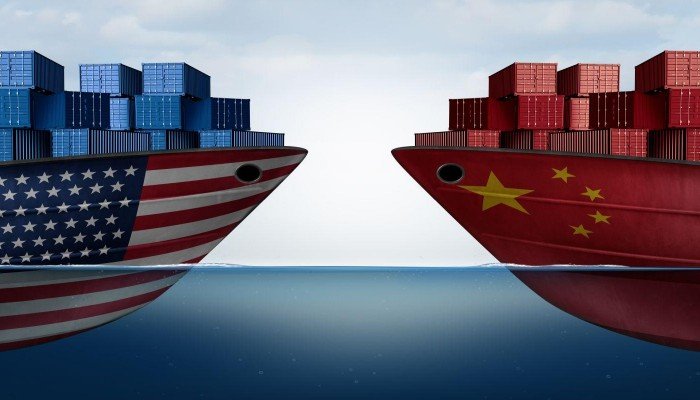Central Banker, scholar, and CIM faculty Dr Nektarios Michail on how US tarrifs on Chinese goods might affect Shipping.
A trade war is usually defined as an act of legislation, aimed at reducing the amount of trade between a nation and its trade partner(s). By contrast, a trade deal is usually aimed at reducing barriers to trade and thus ensures greater mobility of goods in the regions that this is imposed. For example, the European Union, with its imposition of zero tariffs and restrictions, can be viewed as the largest trade deal in the world.
Recently, the United States have indulged in both practices, imposing $50 billion worth of tariffs for Chinese goods, while signing a trade deal with Mexico. Further to this, the Trump administration has threatened another round of tariffs on approximately $200 billion of imports from China. The Asian giant has not remained idle as it has also imposed a $50 billion ban on US goods, although it is yet uncertain as to how it will respond to an increase in tariffs.
The US appears to be in a position of imposing tariffs without being very much affected by them, as it tends to have market power over several of these countries, given that it imports heavily. In other words, countries may be willing to decrease their original prices so that the resulting price, following a 20% tariff, will be close to the original one.
How can US tariffs on China impact shipping? To begin with, the geographical distance between the US and China means that most goods are transported via the sea. And given that vessels are heavy consumers of oil and oil products, changes in shipping volumes will affect the price of oil.
Further, the proposed tariffs could decrease the amount of total trade in the world, albeit by not by much. Given that total merchandise exports, according to the World Bank, stood at $14.88 trillion in 2017, the tariffed goods would only amount to 1.25% of total exports. Naturally, it should not be expected that trade will cease for all these goods – only to some extent. If it does cease, then a reduction in the quantity of goods shipped is expected to be observed. This reduction will mean that fewer goods will be shipped, which can lead to two different scenarios: either the price of oil will be reduced as a result of less voyage time; or the price of oil will be affected by a smaller extent as a result of travelling with less than optimal capacity.
Will shipping companies be happier with these developments? Again, it depends on the amount of trade. Operators who deal mainly with Asian exports to the US will most likely be dissatisfied with the imposition of tariffs as producers may look for markets closer to their production sites. On the other hand, less Asian-American trade could mean good news for operators which focus on Europe-US trade, as they could see an increase in the amount of trade in the region.
At the moment, the amount of tariffs does not appear to be large enough to justify any meaningful change in the amount of trade, excluding some shipping companies which are focused on these routes. However, the imposition of an additional round of tariffs could have a much greater impact and, depending on how much these could escalate in the future, it could also mean that freight rates may decrease as a result of the reduction in demand. This would hamper shipping companies’ cash flows, at a time when the excess supply observed in the previous years appeared to have been met with increasing demand. Nonetheless, the effects will be highly dependent on the region as well as to how much geographical diversification firms have.

